Maintaining consistent energy throughout your workout can be a significant challenge.
Whether you're a seasoned athlete or a beginner, going into your workout with optimal energy levels (and maintaining those energy levels throughout your workout) is crucial to achieving your fitness goals.
Low energy levels can lead to poor performance, decreased motivation, and even injury.
In this article, we'll explore the science behind pre- and intra-workout energy levels and examine simple and practical solutions to energize your body and maintain stamina throughout the duration of your workout.
What the Science Tells Us
Staying energized before and during exercise is essential for doing your best and achieving fitness objectives.
Your body requires a substantial amount of energy to power physical activities, which usually comes from glucose and glycogen stored in the muscles and liver.
Glycogen stores can be used up quickly during intense workouts, leading to exhaustion and decreased performance.
A few things affect how well we keep our energy levels while working out, some of the most impactful include hydration levels, physical fitness, and nutrient availability.
Because even minor dehydration can lead to fatigue, reduced endurance, and impaired cognitive function, optimal hydration is crucial.
Your level of physical fitness also plays a role in how efficiently your body utilizes energy during exercise.
And finally, consuming a well-balanced, nutrient-dense diet provides your body with the necessary nutrients to sustain energy levels.
Practical and Simple Solutions
If you're looking to improve your energy levels during your workouts, here are several practical and simple solutions you can try.
Hydrate: Staying hydrated is essential for maintaining optimal energy levels during exercise. Make sure to drink plenty of water before, during, and after your workout. For longer workouts or intense exercise, you may also want to consider an electrolyte drink to help replenish lost minerals.
Caffeinate: Caffeine is a natural stimulant that can help boost energy levels and improve focus. Drinking a cup of coffee or tea before your workout can help give you the extra energy you need to power through your routine.
Prioritize Sleep: Getting enough rest is essential for maintaining energy levels during exercise. Aim for at least 7-8 hours of sleep each night and take rest days as needed to allow your body to recover and recharge.
Have a snack: Eating a small snack that contains carbohydrates, fats, and protein 30 minutes to an hour before your workout can help give you the energy you need to power through your routine. Some great pre-workout snack options include a banana with peanut butter, Greek yogurt with berries, or a protein shake.
Exercise regularly: Regular physical activity improves your cardiovascular health, enhances muscle function, and increases your body's ability to use energy effectively. As you become more physically fit, you may experience increased stamina and improved energy levels during workouts.
Essential Amino Acids (EAAs): Finally, one nutrient in particular that is critical for energy metabolism during exercise is EAAs. Consider supplementing with high-quality EAA supplements before and during your workout to help improve performance, delay fatigue, and increase energy levels.
How EAAs Relate to Energy Levels
There are more than 300 amino acids that exist in nature, but only 20 of these amino acids are found in proteins in our bodies.
Amino acids can be classified as essential amino acids (EAAs), non-essential amino acids (NEAAs), and branched-chain amino acids (BCAAs).
We’ll focus on EAAs here.
Essential amino acids (EAAs) play a critical role in energy metabolism during exercise.
As you exercise, your muscles require energy to contract, and this energy is derived primarily from glucose and glycogen stored in the muscles and liver.
However, these stores are limited and can quickly become depleted during intense workouts, leading to fatigue and decreased performance.
EAAs are the building blocks of protein and can be used to produce glucose through a process called gluconeogenesis. This process provides a source of energy for the muscles when glycogen stores become depleted.
Additionally, EAAs are involved in the synthesis of new muscle proteins and can improve muscle growth and recovery after exercise.
However, EAAs can’t be synthesized by the body, so they must be obtained through diet via whole food protein or supplementation. If you don’t get enough EAAs, your body will tap into muscle to maintain EAA levels.
Supplementing with EAAs before and during exercise can improve performance, delay fatigue, and increase energy levels.
Consuming EAAs before exercise can increase blood amino acid levels and muscle protein synthesis, providing a source of energy for the muscles.
Furthermore, consuming EAAs during exercise can reduce muscle breakdown and improve recovery, allowing athletes to maintain optimal energy levels throughout their workouts.
Kion Aminos for Pre- and Intra-Workout Energy
An ideal pre-workout should do two things: give you energy and enhance your exercise performance.
Kion Aminos does both of these without downsides like increased blood pressure, impaired sleep, stress, and that tingling sensation you can get from other supplements.
With Kion Aminos, you get steady, natural boost that'll give you the energy you need to get going and stamina to power through your workouts.
Kion Aminos is clean, research-backed, and contains all 9 EAAs in their ideal ratios. It is sugar-free and comes in natural Mango, Watermelon, Cool Lime, and Mixed Berry flavors (as well as unflavored Capsules) and on-the-go packets, making it easy to take with you to the gym or anywhere you need clean, sustained energy.
Summary
Maintaining energy levels during a workout is crucial for achieving optimal performance and reaching fitness goals.
EAAs play a vital role in energy metabolism during exercise, providing a source of fuel for your muscles when energy stores become depleted.
Supplementing with EAAs before and during exercise can improve performance, delay fatigue, and promote recovery.
When it comes to choosing an EAA supplement, Kion Aminos stands out as the optimal solution.
Its high-quality formulation and unique blend of ingredients ensure steady, natural energy by stimulating cellular energy production, counteracting central fatigue, and preventing muscle fatigue during endurance training.
Whether you're a seasoned athlete or a beginner, incorporating Kion Aminos into your workout routine can help you reach your fitness goals and achieve peak performance.
Kion Aminos | Clean, sustained energy
Buy Now
Scientific Research
- American College of Sports Medicine, Sawka MN, Burke LM, et al. American College of Sports Medicine position stand. Exercise and fluid replacement. Med Sci Sports Exerc. 2007;39(2):377-390.
- Børsheim E, Tipton KD, Wolf SE, Wolfe RR. Essential amino acids and muscle protein recovery from resistance exercise. Am J Physiol Endocrinol Metab. 2002;283(4):E648-E657.
- Børsheim E, Tipton KD, Wolf SE, Wolfe RR. Essential amino acids and muscle protein recovery from resistance exercise. Am J Physiol Endocrinol Metab. 2002;283(4):E648-E657.
- Chtourou H, Souissi N. The effect of training at a specific time of day: a review. J Strength Cond Res. 2012;26(7):1984-2005.
- Churchward-Venne TA, Burd NA, Phillips SM. Nutritional regulation of muscle protein synthesis with resistance exercise: strategies to enhance anabolism. Nutr Metab (Lond). 2012;9(1):40.
- Grgic J, Mikulic P. Caffeine ingestion acutely enhances muscular strength and power but not muscular endurance in resistance-trained men. Eur J Sport Sci. 2017;17(8):1029-1036.
- Fullagar HH, Skorski S, Duffield R, Hammes D, Coutts AJ, Meyer T. Sleep and athletic performance: the effects of sleep loss on exercise performance, and physiological and cognitive responses to exercise. Sports Med. 2015;45(2):161-186.
- Ispoglou T, Witard OC, Duckworth LC, Lees MJ. The efficacy of essential amino acid supplementation for augmenting dietary protein intake in older adults: implications for skeletal muscle mass, strength and function. Proc Nutr Soc. 2021;80(2):230-242.
- Kreider RB. Effects of creatine supplementation on performance and training adaptations. Mol Cell Biochem. 2003;244(1-2):89-94.
- Lambert CP, Frank LL, Evans WJ. Macronutrient considerations for the sport of bodybuilding. Sports Med. 2004;34(5):317-327.
- Newsholme EA, Blomstrand E. Branched-chain amino acids and central fatigue. J Nutr. 2006;136(1 Suppl):274S-6S.
- Pasiakos SM, McLellan TM, Lieberman HR. The effects of protein supplements on muscle mass, strength, and aerobic and anaerobic power in healthy adults: a systematic review. Sports Med.
- Ruocco C, Segala A, Valerio A, Nisoli E. Essential amino acid formulations to prevent mitochondrial dysfunction and oxidative stress. Curr Opin Clin Nutr Metab Care. 2021;24(1):88-
- Shimomura Y, Murakami T, Nakai N, Nagasaki M, Harris RA. Exercise promotes BCAA catabolism: effects of BCAA supplementation on skeletal muscle during exercise. J Nutr. 2004;134(6 Suppl):1583S-1587S.
- Tipton KD, Witard OC. Protein requirements and recommendations for athletes: relevance of ivory tower arguments for practical recommendations. Clin Sports Med. 2007;26(1):17-36.
- Williams M, Raven PB, Fogt DL, Ivy JL. Effects of recovery beverages on glycogen restoration and endurance exercise performance. J Strength Cond Res. 2003;17(1):12-19.
- Wolfe RR. The underappreciated role of muscle in health and disease. Am J Clin Nutr. 2006;84(3):475-482.



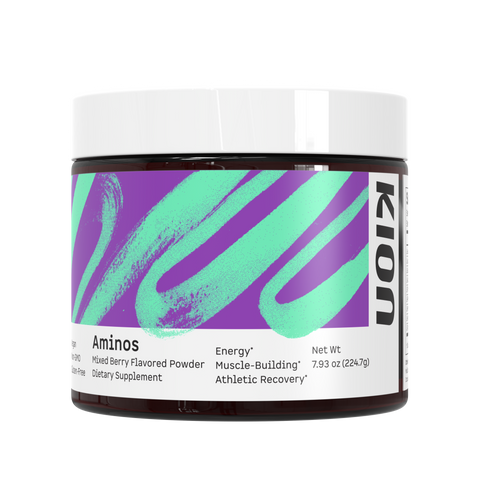
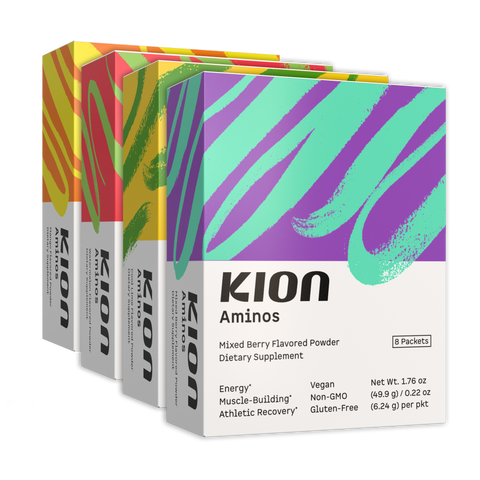
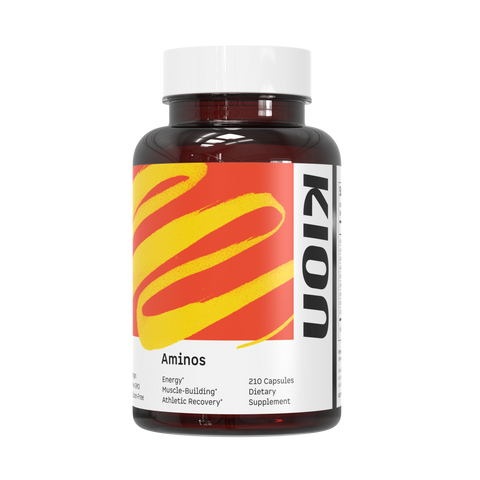
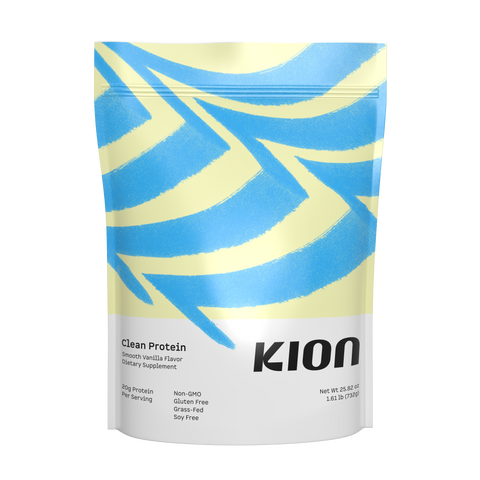
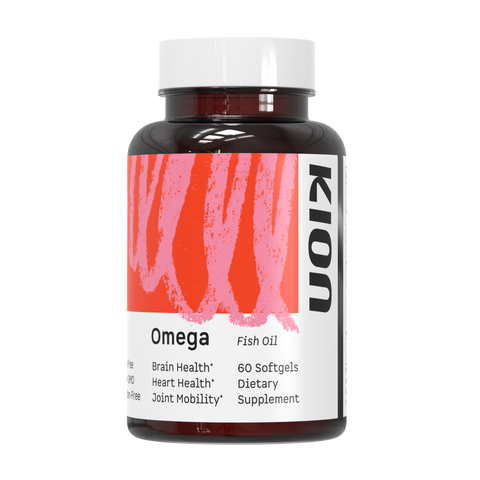
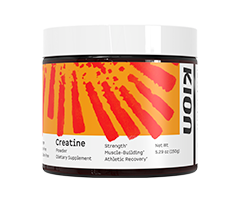
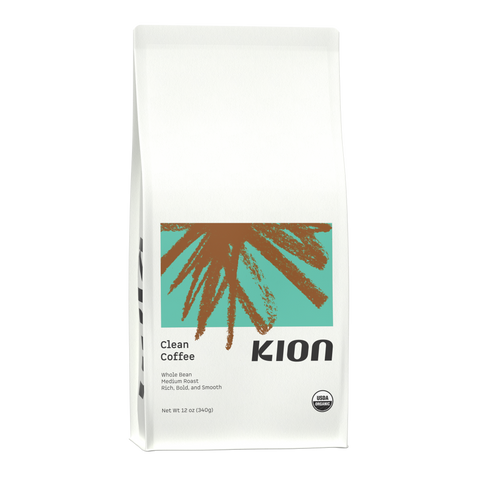
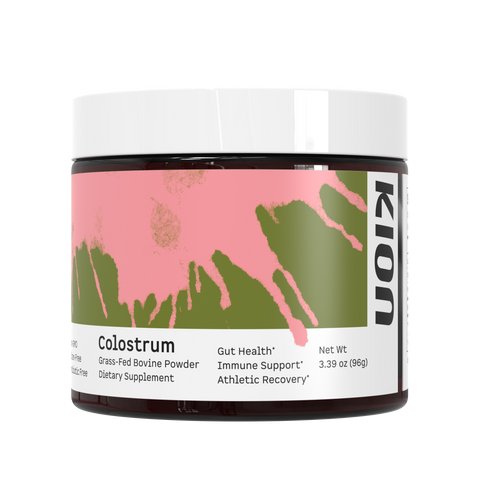








Comments
KION, I LOVE your products I have bought 2 aminos mango is my favorite and 1 creatine. Keep up the good work of a clean great product.
Tamara on